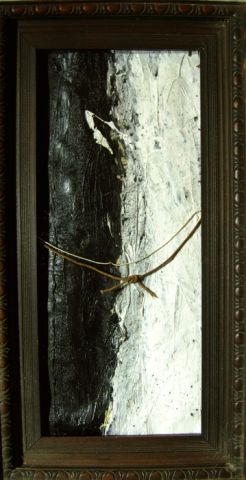I work in the studio on Mondays. It is my day for art and I am available to no one. This is what I was thinking about on Monday as I worked on new work.
I returned to my childhood today. I wasn’t reminiscing or having sentimental memories of my past, it’s a past I’m not always happy to revisit. But my work in the studio today took me there unexpectedly.
I have several things going at once here, and strangely, they all are funneling my thoughts in one direction.
I worked on six small works on paper, a writing sample for a competition, an exhibition entry and another work – it may be sculptural, it may be painting, it may be conceptual, in fact, I’m not quite sure what it is and whether I face legal action if I exhibit it. It’s this work which has hit me forcefully today.
The six works on paper, as a group, are called ‘6 obliterations’. I found things I did not expect to find in these works. They actually are completely different than what I intended to make. They connect to my history, too, and have set my thoughts on this path back to my childhood.
The writing sample has a curious theme of crime and punishment (in relation to art). I chose as my subject a statement of contemplating my actions, my crime, against this last work which I cannot yet define. It involves a book written by someone else and actions perpetrated by me. It is these actions to this book which has struck me with such force.
As a child and I think for my whole childhood, I scribbled on anything and everything which came within my reach. Nothing was safe. I marked, broke or left trace on everything I knew. I once even used scotch tape to lift the gold leaf from my grandmother’s harp. That de-gilded patch remained in my view until the day I sold the harp to fund my move to Europe. Every time I saw it, my subconscious reminded me it was mine, I did it, I made that mark.
The actions and marks I make today on someone else’s book make me feel the force of those memories and I remember the strange feelings I had as a child creating my own world within someone else’s world. They were strange feelings of absolute abandon in acting on my thoughts, making my inner space visible; building a world that only I knew and understood. It was a sort of isolation, but it was me isolating and removing myself from the world I looked out on. I left that world to create my world.
Clearly, as an adult, one must move away from those kinds of fantasies in order to function. But the unexpected return of those feelings today as I work has left me with a profound sense of my history, my existence, my self. The weight of which I can probably never express.





